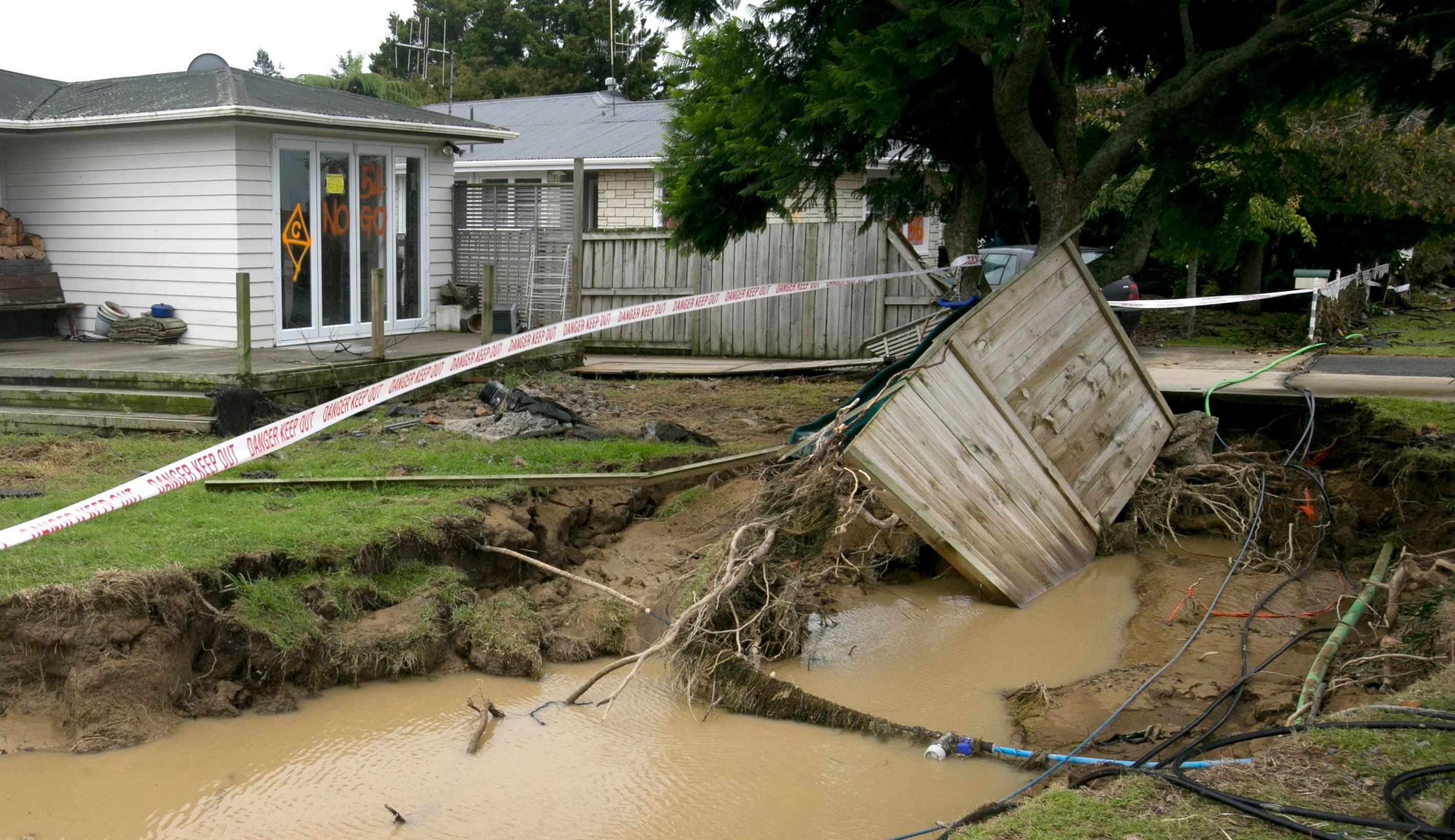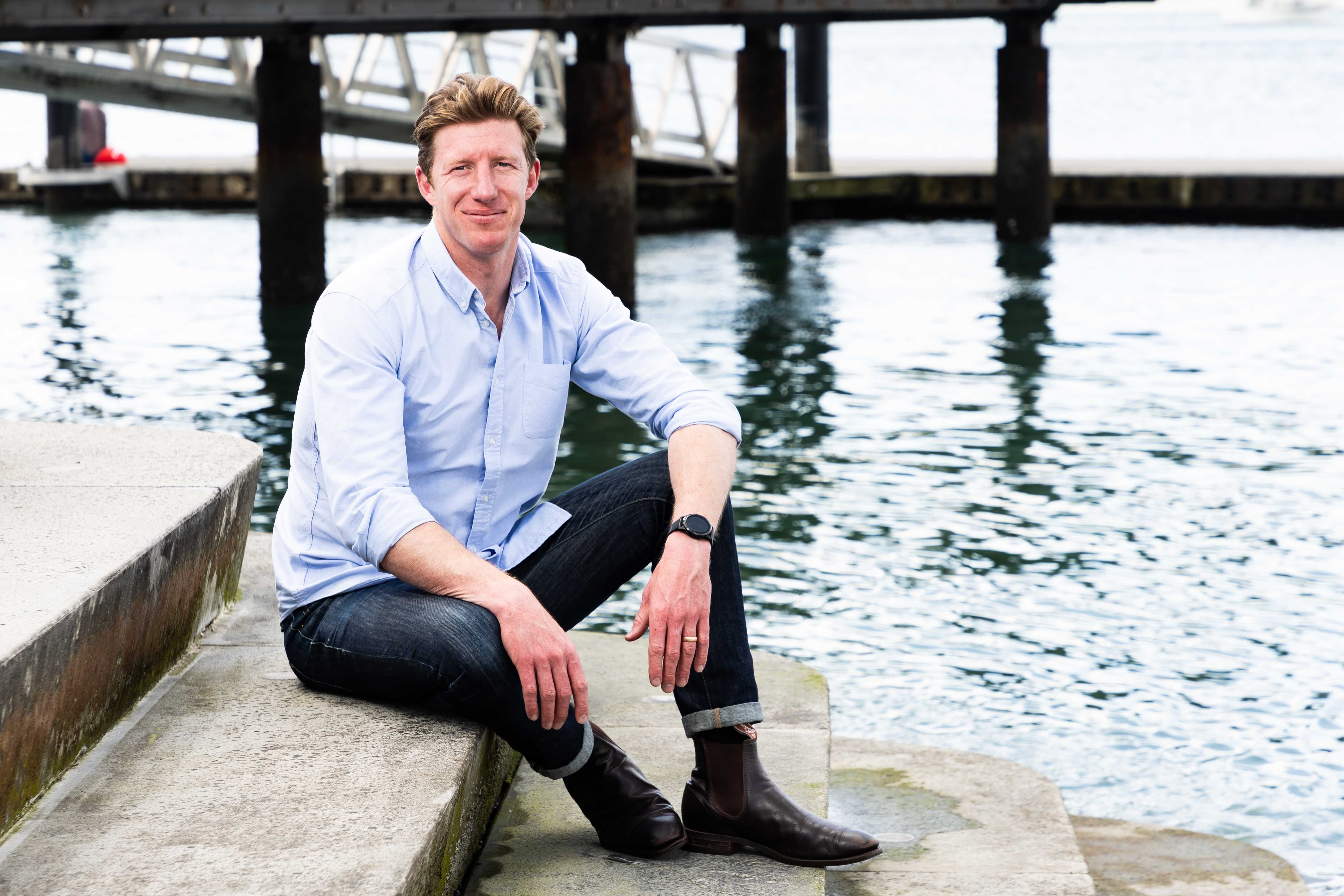The story of Brett, 52, highlights the ‘systems failure’ that led to him living on the streets.
In a 2017 case study by the Tauranga City Council, Brett was still residing in the Coromandel when a catastrophe in the Bay of Plenty altered his life.
Following heavy rain from the remnants of Cyclone Debbie, the stopbank protecting Edgecumbe from the Rangitāiki River breached on the morning of April 6, 2017.
Brett found himself unwell after the Edgecumbe flood clean-up work was completed.
He had necrotising fasciitis, otherwise known as ‘flesh-eating disease’.
He likely picked up the infection while helping clean up after the floods.
Surgery and aggressive antibiotics are the treatment for this severe and sometimes fatal infection.
He had four separate surgeries, including two plastic surgery procedures, and spent several weeks in hospital.
When it was time for him to be discharged, Brett had nowhere to go, and this was when his homelessness journey began.
Brett would run the gamut and live in shared accommodation. He was offered a tent to live in and then found refuge in his car until it was impounded.
Now, he permanently lives in his ‘spot’.

Some of the worst damage done to houses by the flooding in Edgecumbe on April 12, 2017. Photo / Alan Gibson
“Homelessness is not a choice,” council community development and emergency management manager Paula Naude said in an email.
In Tauranga, about 2.8% of residents experience homelessness, according to Naude.
“However, the numbers experiencing homelessness could be higher with people who are ‘homeless’ but aren’t seeking any external support,” Naude said.
Homelessness is a complex issue and is defined as a living situation where people have no other options to acquire safe and secure housing.
The image of rough sleeping, living in cars and tents is often the first image that comes to mind when thinking of homelessness, but it also includes:
“In most cases, homelessness is not something that happens overnight. It is often a culmination of events or factors.”
In 2023, the Tauranga City Council recorded 308 people who identified as homeless, 51% of whom were male and 55% Māori.
“Factors like poverty, discrimination, a lack of housing and rising rents sometimes collide with individual circumstances like losing a job, accumulation of debt, illness, or relationship breakdown, which can result in people finding themselves homeless.”
As of June 2023, when the data was last available, there were seven known tent sites and 17 rough sleepers.
Tent sites peaked at 21 in 2021, and the Tauranga City Council counted 50 ‘rough sleepers’ in the same year.
“The number of people impacted by homelessness is likely to be much higher than recorded,” said Naude.
According to a report from the OECD’s Social Policy Division, New Zealand has the seventh highest number of homeless per capita, with Australia following close behind at number eight and the United States one place higher at number six.
-(1).jpg)
“In most cases, homelessness is not something that happens overnight. It is often a culmination of events or factors," said council community development and emergency management manager Paula Naude. Photo / 123 rf
The report said New Zealand has the second-highest number of women per capita, while the United Kingdom takes the top spot.
On October 10, it will be the 14th anniversary of World Homeless Day, which started in 2010 to raise awareness and compassion for those experiencing homelessness.
Several service community groups in Tauranga, including churches, marae, community organisations and outreach groups, offer meals, shower facilities and laundry.
“These groups work in a co-ordinated way so people experiencing homelessness have access to at least one warm, healthy, and hearty meal every day.
“Coming together for a meal helps people connect in a safe space and fosters a feeling of belonging and community.”
One such provider, the Kāinga Tupu Taskforce, provides a community-agreed collaborative approach with local government agencies.
“It supports people experiencing homelessness and looks for opportunities to end homelessness in the Western Bay of Plenty sub-region,” Naude said.
The People's Project in Tauranga works with 103 people, about half looking to find housing and half receiving ongoing support, the organisation's general manager Kerry Hawkes said.
“Many people we support have experienced a great deal of trauma in their lives and are simply focused on surviving. Some may be in flight or fight mode, needing a safe place to sleep and specialised support.”
Homelessness in Tauranga is an ongoing problem, said Hawkes, and an expensive rental market coupled with a lack of housing supply was one of the main drivers.
“We have not yet met any people experiencing homelessness who truly wanted to live on the street.”
“Every one of the people experiencing homelessness we work with wants a home.”
The Peoples Project had its tenth anniversary in August 2024, delivering more than 1800 housing outcomes in Tauranga and Hamilton.
“The Housing First approach has been adopted throughout New Zealand with positive impact,” Hawkes said.
The ongoing homelessness crisis requires a comprehensive response that includes housing-first, affordable rentals, emergency housing, transitional housing and social housing, according to Sam Uffindell, Member of Parliament for Tauranga.

Sam Uffindell, MP for Tauranga. Photo / Alex Cairns
“The new National-led Government has introduced the Going for Housing Growth programme, which aims to address the fundamental causes of a lack of housing supply to lower housing costs for everyone,” Uffindell said.
Uffindell echoed that service providers were doing a good job supporting vulnerable members in Tauranga.
“Locally, Takitimu House is doing an awesome job giving shelter to homeless people and providing the wraparound services to help them get their lives back together and lead lives of dignity.
“Budget 2024 invested $83.5 million into support services including Housing Navigators, brokers and the rental readiness programme to help people in need access suitable and sustainable accommodation.”



0 comments
Leave a Comment
You must be logged in to make a comment.